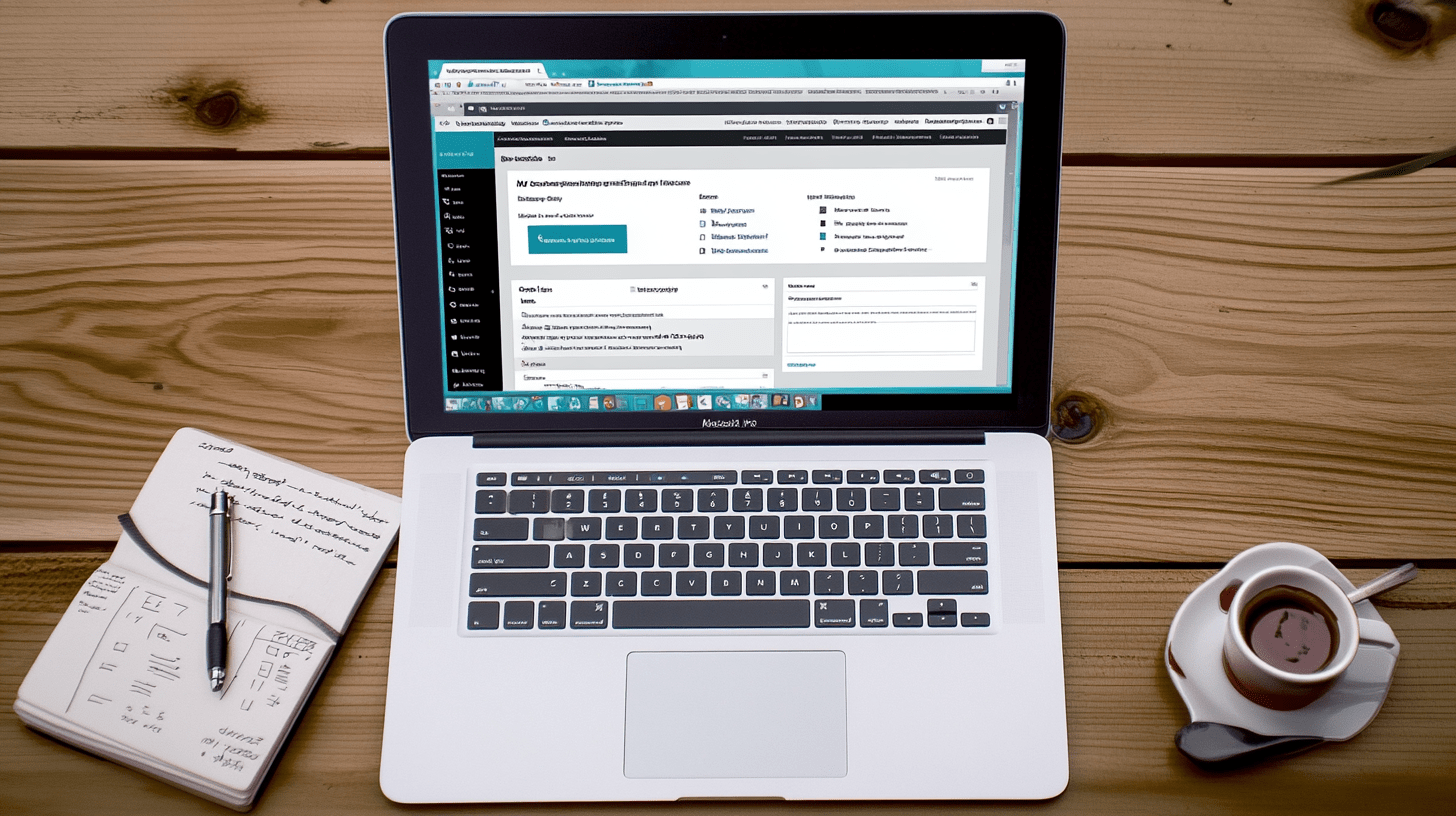
How to Improve WordPress Site Speed for Better SEO
Wondering how to make your WordPress site faster for SEO? Ben Bond shares actionable strategies to boost your site's performance and SEO rankings.
Introduction: Why WordPress Site Speed Matters for SEO
Hey there! If you're running a WordPress site, you know how crucial SEO is for driving organic traffic. But did you know that site speed is a significant factor in SEO rankings? Google has explicitly stated that page load time is a ranking factor, and a slow website can hurt your visibility. Here at benbond.dev, my team and I have helped numerous businesses accelerate their WordPress sites to improve their SEO. Let's dive into how you can do the same.
Understanding the Importance of Site Speed
Before we jump into the solutions, let's understand why speed is so critical:
- User Experience: A fast-loading site provides a better experience, reducing bounce rates and encouraging longer visits.
- Search Engine Rankings: Google prioritizes fast-loading pages, impacting your site's position in search results.
- Conversion Rates: Speed directly influences conversions. A delay of even a second can significantly decrease conversion rates.
Key Factors Affecting WordPress Site Speed
Here are some common culprits slowing down your WordPress site:
- Heavy Themes and Plugins: Overloading your site with resource-intensive themes or numerous plugins.
- Large Image Files: Unoptimized images are a major contributor to slow load times.
- Database Overload: A cluttered or poorly optimized database can slow down your site.
- Hosting: Inadequate hosting solutions can severely impact your site's performance.
Strategies to Boost Your WordPress Site Speed
1. Optimize Your Images
Images are often the heaviest elements on a page. Here’s how to optimize them:
- Use Image Compression Tools: Plugins like Smush or ShortPixel can significantly reduce file sizes.
- Serve Images in Next-Gen Formats: Formats like WebP offer better compression and quality than JPEG or PNG.
- Lazy Loading: Implement lazy loading to load images only when they're about to enter the viewport. Check out our guide on lazy loading for WordPress images.
2. Choose the Right Hosting
Your hosting provider plays a pivotal role in site speed:
- Opt for Managed WordPress Hosting: Providers like WP Engine or SiteGround offer optimized environments for WordPress.
- Use a CDN: Content Delivery Networks like Cloudflare can distribute your site's static content globally, reducing load times.
3. Optimize Your Database
A clean database ensures faster query times:
- Regular Cleaning: Use plugins like WP-Optimize to clean up post revisions, spam comments, and other unnecessary data.
- Indexing: Proper indexing can speed up database queries. Here's how you can optimize your WordPress database performance.
4. Leverage Caching
Caching reduces server load by storing static versions of your site:
- Browser Caching: Set expiration times for static resources so browsers cache them for repeat visitors.
- Server-Side Caching: Use plugins like W3 Total Cache or WP Rocket to cache your site on the server level.
5. Minimize HTTP Requests
Every element on your page requires an HTTP request. Here’s how to reduce them:
- Combine CSS and JavaScript: Use tools to combine multiple files into one to cut down on requests.
- Remove Unused CSS: Tools like PurgeCSS can remove unused styles, reducing file sizes.
6. Use a Lightweight Theme
Themes can be heavy on resources:
- Choose Lightweight Themes: Consider themes like Astra or GeneratePress which are known for their performance.
- Customize Wisely: Avoid bloating your theme with too many customizations that require additional resources.
7. Plugin Management
Plugins are essential but can slow down your site:
- Audit Your Plugins: Regularly review and remove plugins you no longer need.
- Choose Efficient Plugins: Opt for well-coded, performance-focused plugins.
8. Implement AMP
Accelerated Mobile Pages (AMP) can drastically improve mobile load times:
- Use AMP Plugins: Plugins like AMP for WP can help you set up AMP pages quickly.
- Consider Next.js for AMP: If you're looking for even more control over your AMP implementation, consider building a Next.js site with AMP.
9. Use Asynchronous Loading
Asynchronously load scripts to keep your page from waiting:
- JavaScript: Load JavaScript asynchronously to prevent it from blocking page rendering.
- CSS: Use critical CSS inline and load the rest asynchronously.
10. Server-Side Rendering with Next.js
For those looking for a more advanced solution:
- Next.js Integration: By using Next.js for server-side rendering, you can significantly improve load times. Learn more about Next.js server-side rendering.
Tools for Measuring Your Site Speed
To track your improvements, here are some tools:
- Google PageSpeed Insights: Provides a comprehensive analysis of your site's speed.
- GTmetrix: Offers detailed insights into page load times and recommendations for improvements.
- Pingdom: Measures load time and provides performance grades.
Conclusion: Speed Up Your WordPress Site for SEO Success
Improving your WordPress site speed isn't just about SEO; it's about providing a better user experience, which in turn boosts your SEO. At benbond.dev, my team and I are dedicated to helping businesses like yours optimize their sites for speed, ensuring you stay ahead in the competitive digital landscape. If you're interested in a tailored solution or need a quote, feel free to contact me or request a quote.
Remember, every second counts in the world of SEO. Implement these strategies, keep monitoring, and continually refine your site for the best performance. Here's to faster load times and higher search rankings!
Table: Quick Tips for WordPress Speed Optimization
| Strategy | Tools | Impact |
|---|---|---|
| Image Optimization | Smush, ShortPixel | Reduces load time by optimizing images |
| Hosting | WP Engine, SiteGround, Cloudflare | Improves server response time |
| Database Optimization | WP-Optimize, PHPMyAdmin | Speeds up database queries |
| Caching | W3 Total Cache, WP Rocket | Reduces server load |
| Minimize HTTP Requests | Combine CSS/JS, PurgeCSS | Decreases number of requests |
| Lightweight Theme | Astra, GeneratePress | Improves overall site speed |
| Plugin Management | Audit and remove unnecessary plugins | Keeps site lightweight |
| AMP | AMP for WP, Next.js | Enhances mobile load times |
| Asynchronous Loading | Use async attributes in scripts | Prevents blocking of page rendering |
Keep in mind, SEO optimization is an ongoing process. For more in-depth strategies on SEO, Next.js, and WordPress, explore our SEO optimization guides.
Let's make your WordPress site not just fast but SEO-friendly too!
